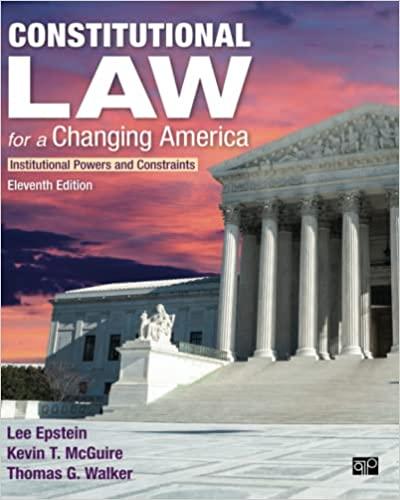Question
1) A, B and C borrowed Php900,000 from X. This debt is evidenced by a promissory note wherein the three (3) bound themselves to pay
1) A, B and C borrowed Php900,000 from X. This debt is evidenced by a promissory
note wherein the three (3) bound themselves to pay the debt "jointly and/or severally".
However, according the promissory note, A can be compelled to pay only on January
18, 2020; B can be compelled to pay only on February 18, 2020; while C can be
compelled only when X passes the CPA Board Exam. On January 18, 2020, X made a
demand upon A the entire indebtedness.
a) Is X correct? If yes, why? If not, how much can X demand from A? why?
b) Can X also make demand from B and/or C? If yes, why? Or if not, why?
2) A, B and C are joint creditors of X and Y, solidary debtors in the amount of
Php100,000. How much can A, B and C collect from X? Why?
3) A, B, and C promised to pay X solidarily Php300,000 on or before September
07, 2020 without need of demand. On September 15, 2019, A paid the whole
Php300,000 to X.
(a) How much can A collect from B and C? Why?
(b) May A collect interest from B and C? Why?
(c) Suppose C turns out to be insolvent, how much can A collect from B? Why?
4) (a) A obliged himself to give B One Million Pesos if B will not marry
C before December 31, 2019. If by said date, B is not yet married, or on February 12,
2019, C died, when will the obligations of A arises? Why?
(b) Suppose before December 31, 2019, B became a Roman Catholic priest, is the
obligation of an effective on the date B entered the priesthood? Why?
5) D binds himself to give Php100,000 to C upon the death of the father of D. Is the
obligation of D conditional or one with a period? Why?
Step by Step Solution
There are 3 Steps involved in it
Step: 1

Get Instant Access to Expert-Tailored Solutions
See step-by-step solutions with expert insights and AI powered tools for academic success
Step: 2

Step: 3

Ace Your Homework with AI
Get the answers you need in no time with our AI-driven, step-by-step assistance
Get Started


